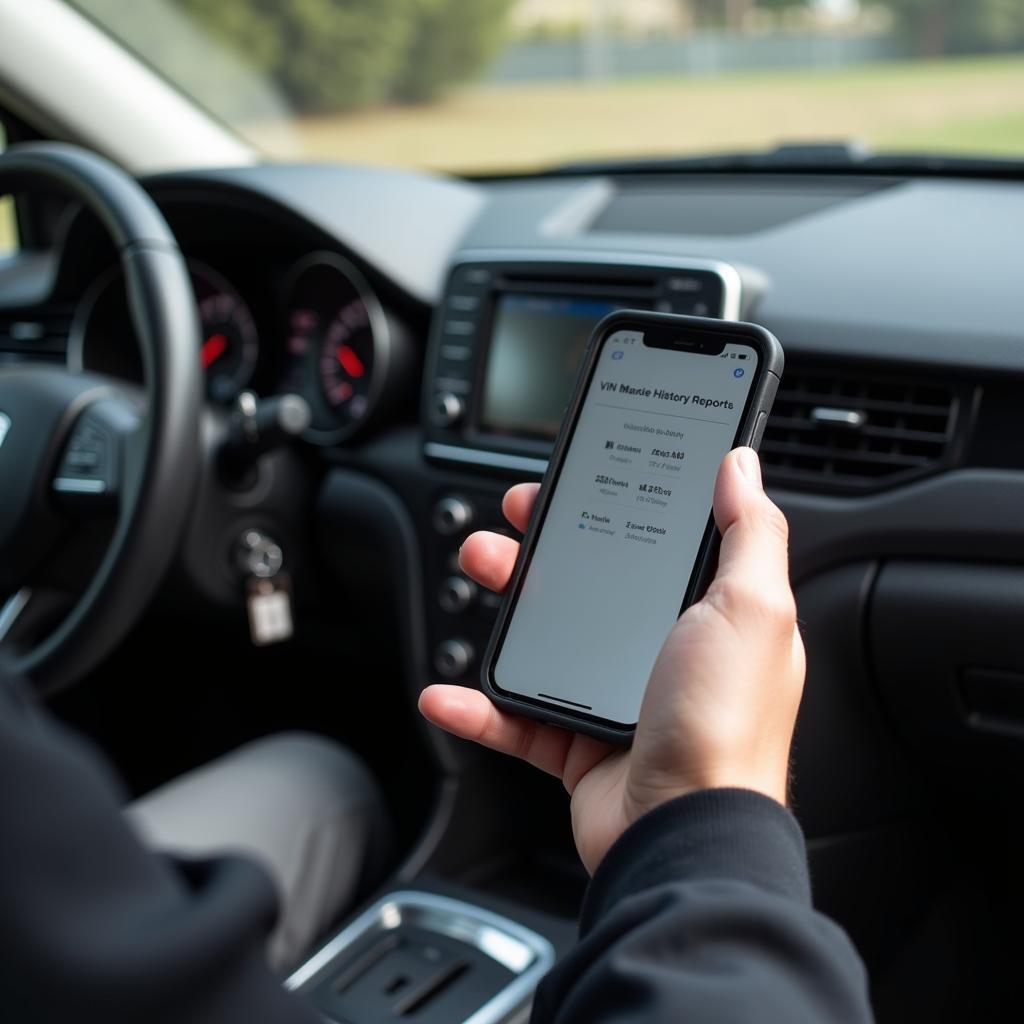Shopping for good used cars for sale can be a daunting task, but it doesn’t have to be. With the right knowledge and a bit of patience, you can navigate the used car market with confidence and drive away with a reliable vehicle that fits your needs and budget. This comprehensive guide will equip you with the essential tips and insights to make your used car search a success.
Why Choose a Used Car?
Before diving into the details, let’s address the elephant in the room: why buy used at all? The answer is simple: value. Used cars offer significant cost savings compared to their brand-new counterparts. Depreciation, the decrease in a car’s value over time, hits new cars the hardest in the first few years. By opting for a used vehicle, you let someone else absorb that initial depreciation hit, saving you a substantial amount of money.
Setting Your Budget and Needs
The first step to finding good used cars for sale is to determine what you can realistically afford. Consider your down payment, monthly loan payments (if applicable), and additional expenses like insurance, fuel, and potential maintenance. Once you have a clear budget in mind, make a list of your must-have features and prioritize them.
Do you need a spacious SUV for a growing family, a fuel-efficient sedan for your daily commute, or a sporty coupe for weekend adventures? By clearly defining your needs and budget, you can narrow down your search and focus on cars that align with your lifestyle and financial situation.
Researching Reliable Models
Not all used cars are created equal. Some models have a reputation for reliability and longevity, while others are known for their potential issues. It’s crucial to research different makes and models within your budget to identify those with a proven track record. Online resources, such as consumer reports and automotive forums, can provide valuable insights into the reliability and common problems associated with specific vehicles.
Where to Find Good Used Cars for Sale
Now that you have a shortlist of reliable models, it’s time to start looking for good used cars for sale. There are several avenues you can explore:
- Dealerships: Franchised and independent dealerships offer a wide selection of used cars, often with warranties and financing options.
- Online Marketplaces: Websites like Craigslist, Facebook Marketplace, and AutoTrader connect private sellers and dealerships, providing a vast inventory to browse.
- Auctions: While auctions can offer lower prices, they come with risks, as vehicles are often sold “as-is” without warranties.
 Checking VIN Number on Used Car
Checking VIN Number on Used Car
Inspecting the Car
Once you’ve found a few promising candidates, it’s time for a thorough inspection. This step is crucial for identifying any potential red flags and ensuring the car is in good condition. Here are some key areas to focus on:
- Exterior: Check for dents, scratches, rust, and misaligned panels.
- Interior: Examine the seats, carpets, dashboard, and electronics for wear and tear.
- Engine Bay: Look for leaks, corrosion, and any signs of improper maintenance.
- Test Drive: Take the car for a spin to assess its handling, acceleration, braking, and overall performance.
- Mechanic Inspection: If possible, have a trusted mechanic inspect the car before making a purchase.
Vehicle History Report
Before finalizing the purchase, always obtain a vehicle history report from a reputable provider like Carfax or AutoCheck. This report will reveal crucial information about the car’s past, including:
- Accident History: Any reported accidents, their severity, and the areas affected.
- Title Status: Whether the car has a clean title or has been salvaged, rebuilt, or flood-damaged.
- Mileage: Verification of the odometer reading and any discrepancies.
- Ownership History: The number of previous owners and how long each owned the vehicle.
- Service Records: Any reported maintenance or repairs performed on the car.
Negotiation and Financing
Once you’re satisfied with the car’s condition and history, it’s time to negotiate the price. Research the fair market value of the vehicle using online tools like Kelley Blue Book or Edmunds to get an idea of a reasonable price range. Be prepared to walk away if the seller isn’t willing to negotiate. If you need financing, explore different loan options from banks, credit unions, or the dealership to secure the best interest rates and terms.
Finalizing the Purchase
Congratulations! You’ve found a good used car for sale and are ready to make it yours. Before signing on the dotted line, ensure all the paperwork is in order, including the title transfer, bill of sale, and any warranty documents.
FAQs
Q: What is the best mileage for a used car?
A: While lower mileage is generally preferable, a well-maintained car with higher mileage can still be a good value.
Q: Should I buy a certified pre-owned (CPO) car?
A: CPO cars undergo rigorous inspections and come with warranties, providing added peace of mind but at a higher price.
Q: How can I avoid buying a lemon?
A: Thorough inspections, vehicle history reports, and pre-purchase inspections from a trusted mechanic can help mitigate the risk.
Need More Help?
For additional resources and guidance on navigating the used car market, check out these helpful articles:
Finding good used cars for sale requires research, patience, and a keen eye for detail. By following the steps outlined in this guide, you can approach the process with confidence and increase your chances of driving away with a reliable and affordable vehicle that meets your needs.
Remember to trust your instincts, ask questions, and never hesitate to walk away from a deal that doesn’t feel right. Happy car hunting!
If you need any assistance with car diagnostics, don’t hesitate to contact us:
WhatsApp: +1(641)206-8880
Email: [email protected]
Address: 276 Reock St, City of Orange, NJ 07050, United States
We have a team of customer service representatives available 24/7 to assist you!


